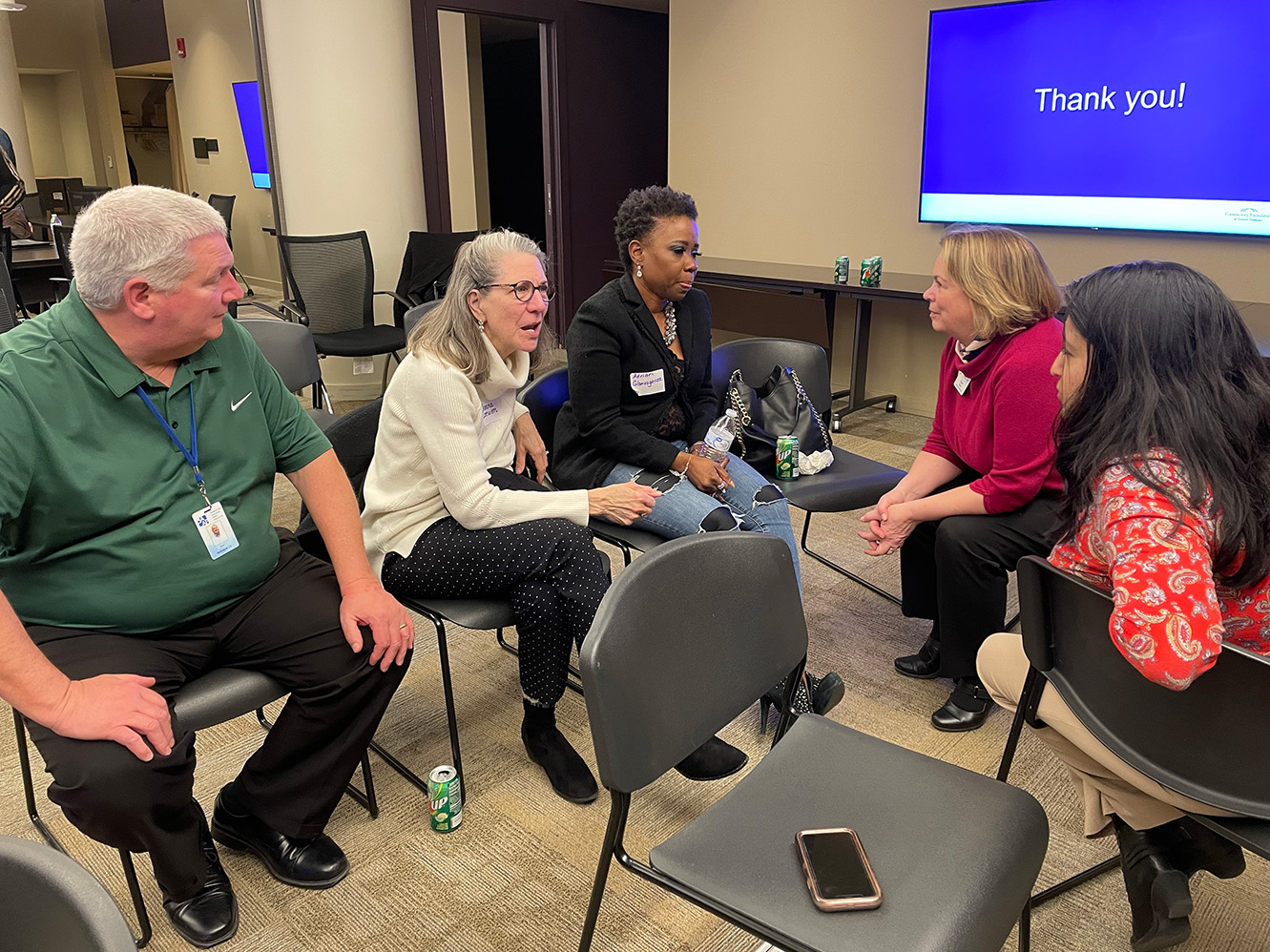Foundation leads racial learning in rural communities

With Northeast Iowa growing more racially and culturally diverse and many across the nation taking a hard look how long-held policies and practices may create barriers for people of color, local leaders in several Northeast Iowa counties are having new conversations about how to foster communities that are welcoming, inclusive and equitable.
The Community Foundation of Greater Dubuque’s equity coordinator, Clara Lopez Ortiz, and community development coordinator, Jason Neises, have recently led learning conversations on the topic of “racial healing” at the request of several of the Community Foundation’s rural affiliate foundations. The Foundation holds “equity and opportunity” as one of its core values, focusing on addressing complex social issues by listening to the voices of many different community members to remove barriers and open access to opportunity.
“Although the conversations we are having are only an introduction, we want to give people a space where they can feel safe when learning and sharing ideas,” said Lopez Ortiz. “These subjects can lead to difficult conversations, but it is important to know that these subjects require continuous learning and there is no easy answer.”
Affiliate advisory board members have sought to increase their understanding of diversity, equity and inclusion issues to help them be more effective in intentional, equitable grantmaking and facilitation of community initiatives. The learning conversations have focused on understanding the concept of equity versus equality and sharing examples of how policies and practices can impact people based on race. Individual boards are beginning next steps that include reviewing their policies with an equity lens, attending presentations by topic experts, and proactively including of people of color who live in their communities in the foundations’ work.
“This issue involves everyone,” one board member commented after taking part in the conversation. “We can learn to be sincerely curious about each other. We are all part of many groups; no one can be categorized into any one particular group.”
The conversations occur as demographics are changing statewide. Iowa’s non-white population under the age of 35 grew by nearly 25% from 2010 to 2018, compared with less than 1% growth of the white population under 35.
“Being welcoming, inclusive communities will help small rural towns retain their youth and feel like the kinds of towns where young people — who tend to be more comfortable with racial and ethnic diversity — want to raise their families,” said Neises. “Addressing issues of diversity, equity and inclusion and building trusted relationships with communities of color will be a key to success for many of our small towns. They need to tell the world they’ll include everyone, and then live up to it.”
For Lopez Ortiz, her personal story helps her connect with people when leading these conversations. She grew up Mexican-American in Cascade. “When I was younger, it was difficult for my family and I to find representation and a place of belonging. Thanks to a few folks that were willing to understand and encourage us, either through my school or community, we were able to make this rural place our home,” she explained. “No matter how small a place is, there is always a need to understand diversity, equity and inclusion because it affects us in many aspects of life. As more people of color are making rural places their home, it has become clear that facing these issues is essential in making a community prosper.”